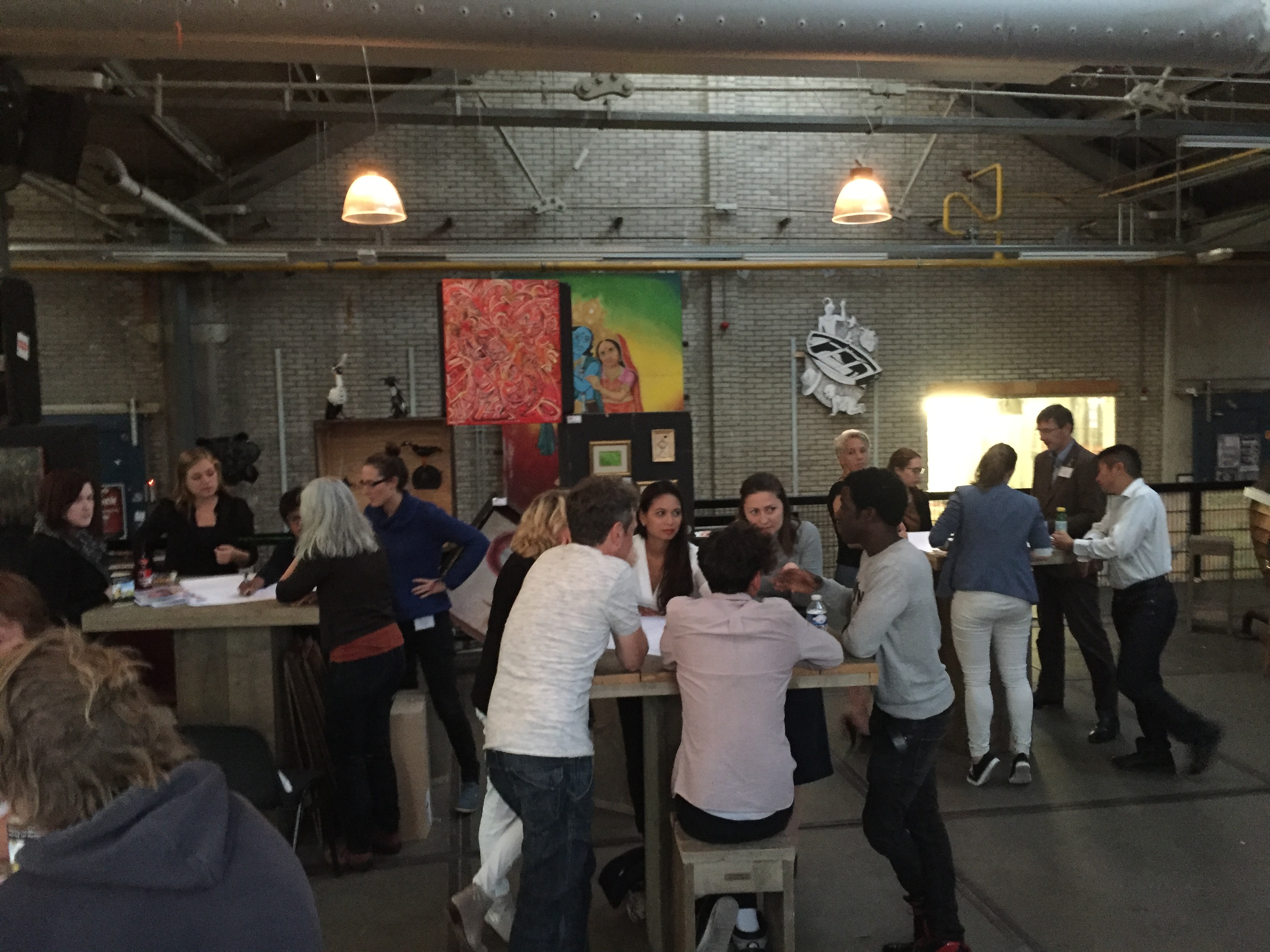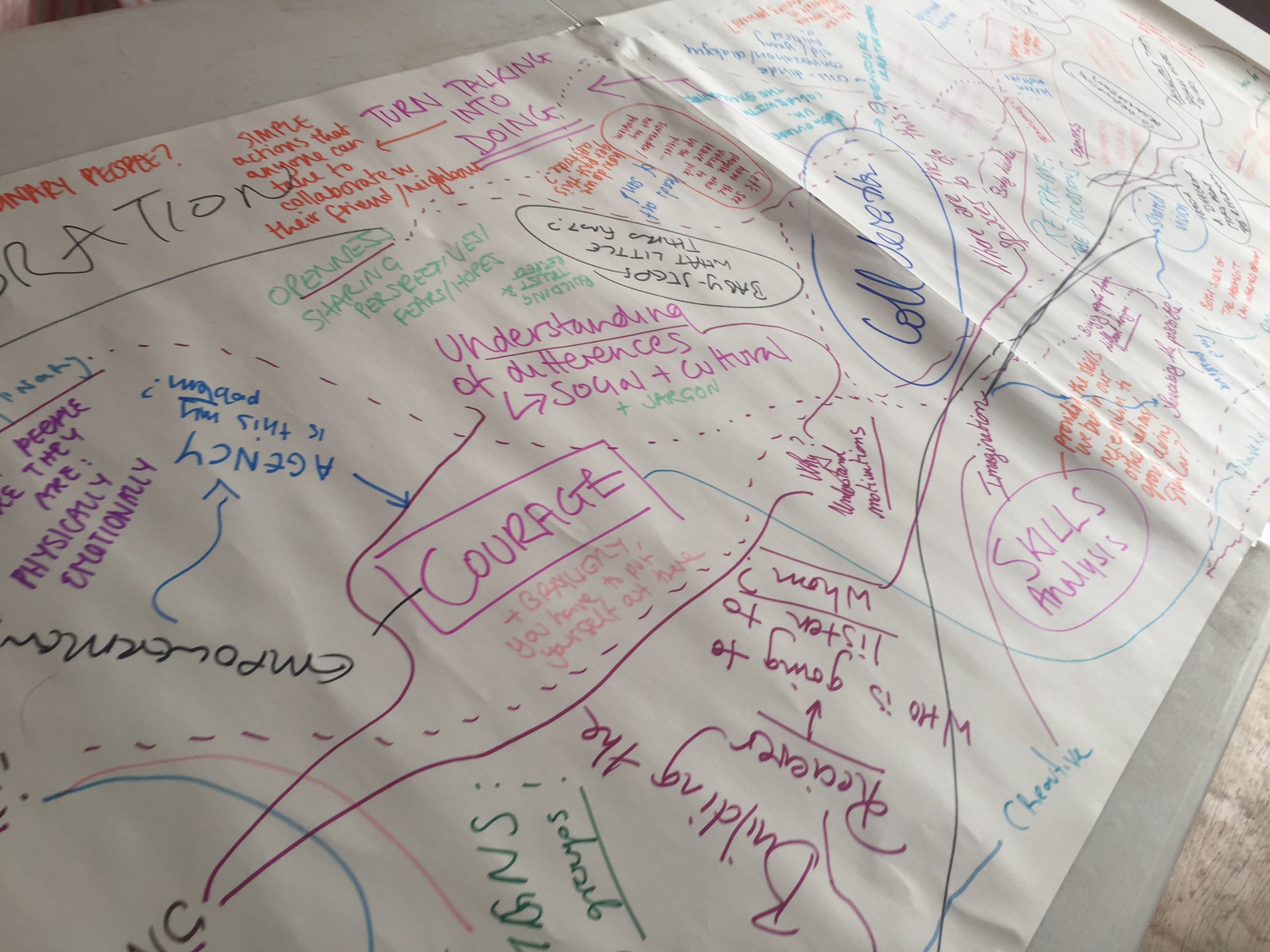Hello from Europe!
We're at the tail end of two weeks of workshops and gatherings in the Netherlands and the UK. This entire trip was sparked by one of our very own Kumus, Aldo de Moor. What started as a single workshop at the European Social Innovation Week in Tilburg quickly multiplied to three other events.
It's been a great trip, filled with interesting, passionate people. Below are some of the highlights!
European Social Innovation Week in Tilburg
The European Social Innovation Week is a week-long event that brings together citizens, entrepreneurs, businesses, government officials, educational institutions and scientists to share knowledge, exchange experiences and develop new ideas.
Our session "Finding Clarity: Practical tools for engaging more effectively in a complex world" focused on giving people a taste of tools they could use to get a handle on complex challenges.
Think of a complex challenge you care deeply about and then use the slides below to walk through the exercises!
Big, Open and Beautiful Speaker Series at Pakhuis de Zwijger
Pakhuis de Zwijger is a cultural organization in Amsterdam focused on creative and innovative approaches towards sustainable society and organizes events on the urgent and complex urban challenges of today.
Our talk was focused on Kumu as a flexible data visualization platform and we also shared a number of the principles that drive our work (both for creating Kumu, and how to engage effectively in complexity). Here's some of the highlights:
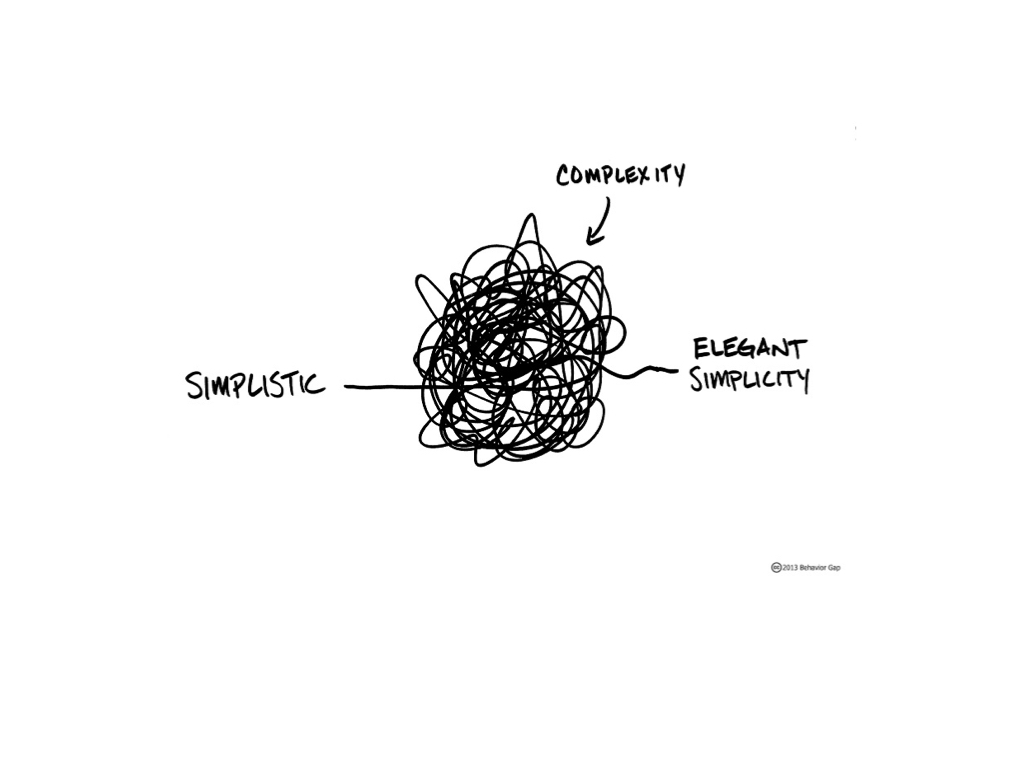
When faced with a complex challenge, it can be tempting to go with simplistic approaches - trusting your "gut" or essentially putting your head in the sand. Our goal should be to end up with elegant simplicity, where we've worked through the complexity enough to understand what we can leave out. What's great about this illustration is you can't just hop over the hairball in the middle. You have to follow that path, do the hard work, and then eventually end up at simple on the other side of complexity. And watch out for getting stuck in the middle - that's often the realm of academics and overwhelming, monstrous maps.
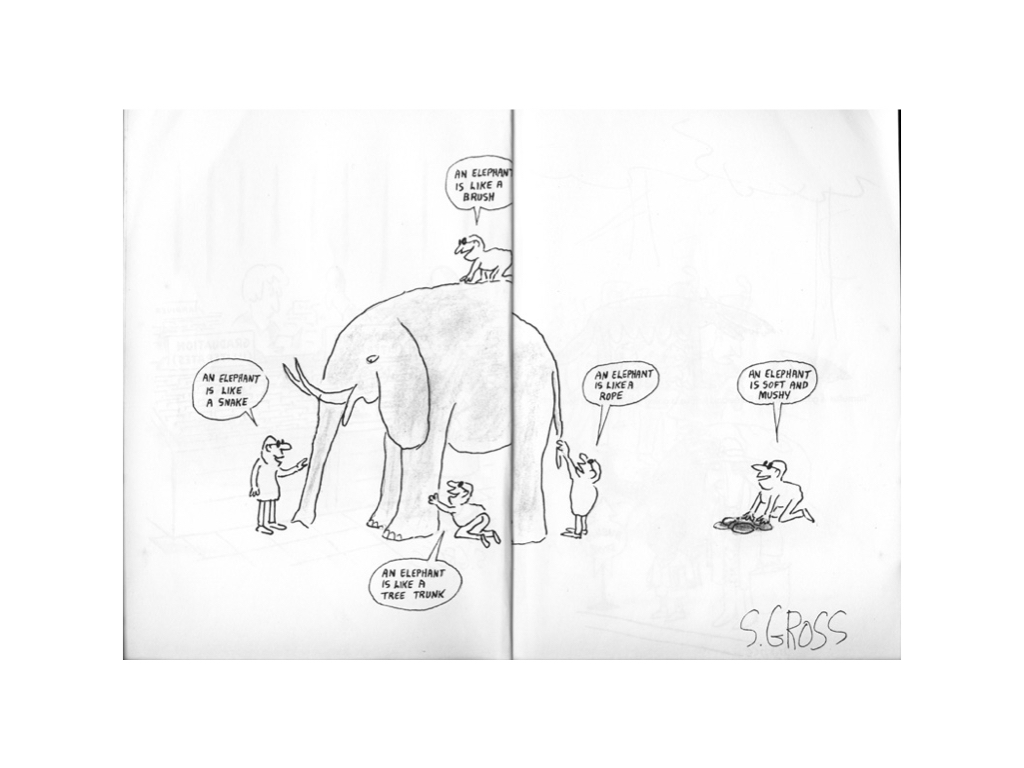
The parable of the blind men and the elephant is a great reminder that none of us see the "whole" system. Only by engaging with multiple perspectives can we hope to start piecing the different viewpoints together. This also means that just using Kumu to map your own view won't lead to breakthrough results. It's about engaging with others in a participatory process to create alignment and shared understanding of what is driving current outcomes.
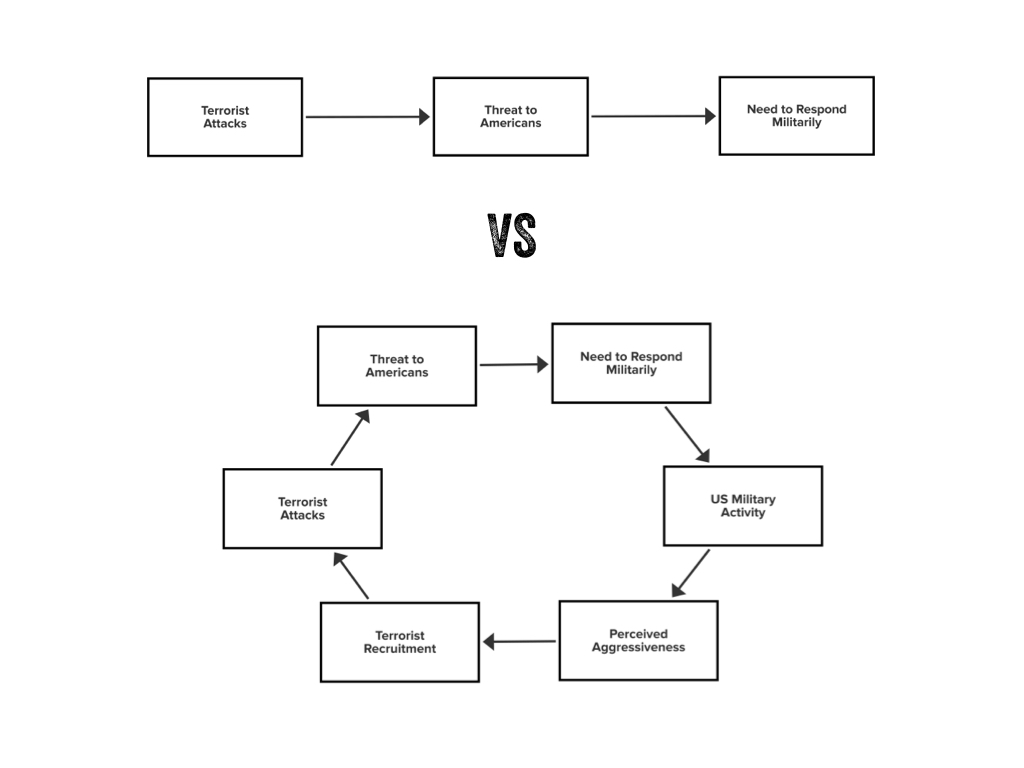
Our world is not linear, yet many of the mental models we use to make sense of the world are. Take these two explanations of terrorism and US response. You'll have a very different policy if your mental model is the linear version at the top, versus if you see terrorism as a dynamic feedback loop where US military activity is perpetuating the cycle. Whenever possible, look for loops as they are some of the most powerful forces driving behavior in systems.
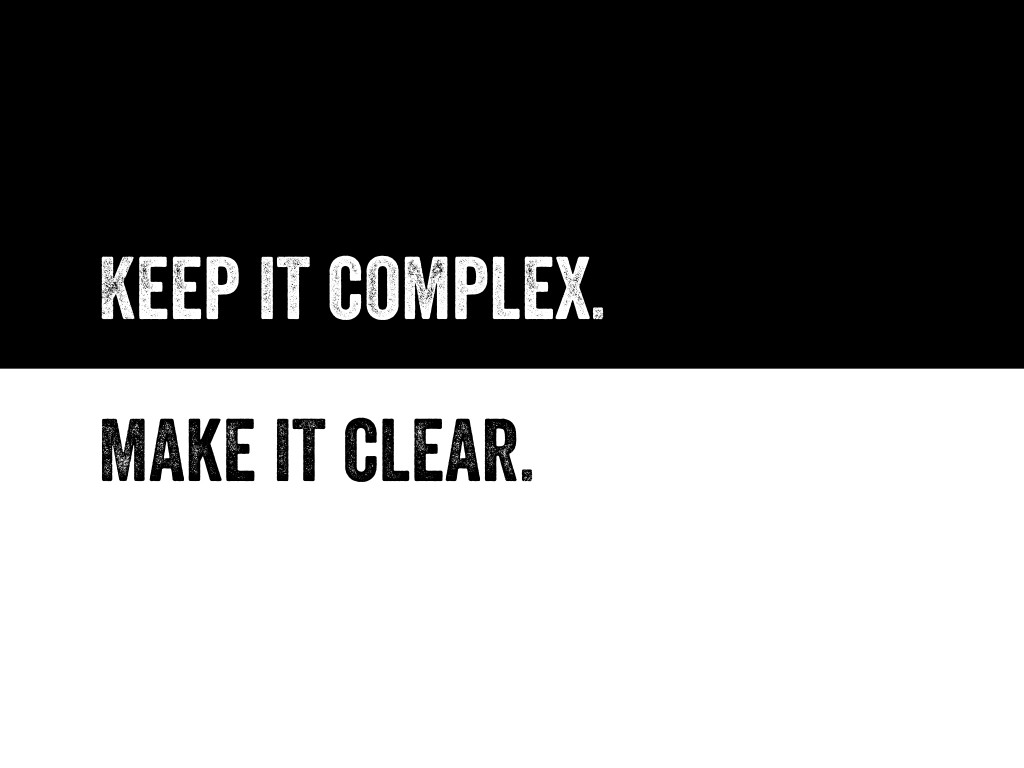
I was introduced to this tagline by Rosalie Schweiker from Keep it Complex in the UK. It is a great reminder that we need to embrace complexity and not oversimplify the dynamics that are creating current behaviors. Oh and consider buying one of their "Potatoes are immigrants" shirts.
Mapping the Future: Activating Creative Change Post-Referendum
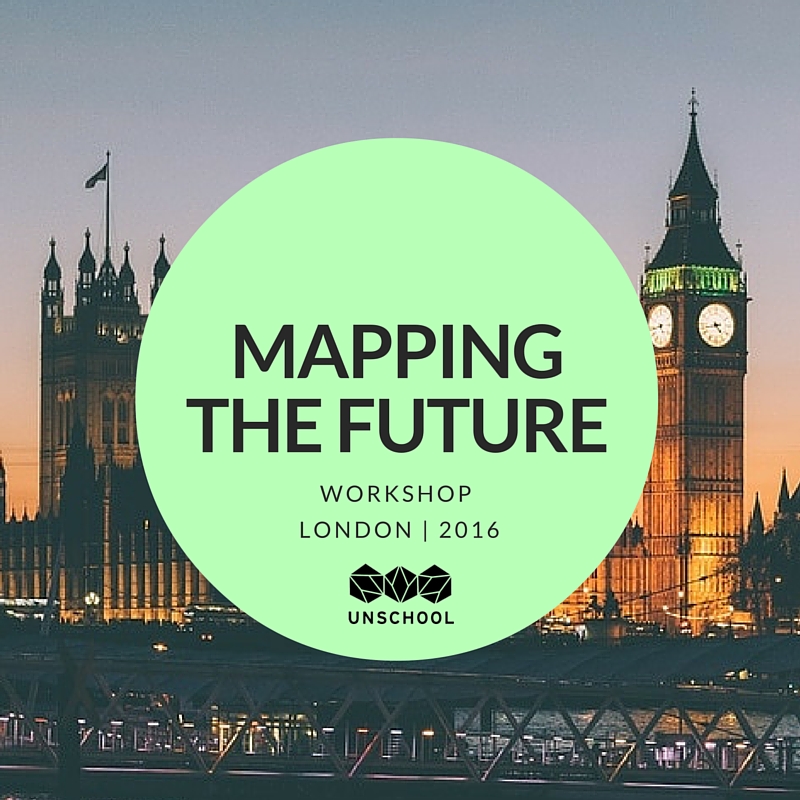
Hosted by We are Europe and the Forum for the Future and facilitated by Leyla Acaroglu from the Unschool of Disruptive Design, this event brought together a diverse group of people to map the complexity surrounding Brexit and look for actions to create a more positive future.
Here's the process Leyla led us through:
- Introductions, sharing our stories of who we are, what we do, and our oddest/whackiest experience around Brexit
- Voting on the issues and topics that came up through the morning discussions to identify themes to map
- For each theme, brainstorming the factors that are at play and getting everyone writing ideas down for each theme
- Identifying connections among factors, and then highlighting which of these causal connections where most influential/important
- Refining the detailed complexity for each theme into a more simplified depiction of the key dynamics
- Generating a map of key stakeholders and organizations as well as identifying bright spots that currently exist
The themes we used to scaffold the mapping proces were:
- Domino effect (of Brexit on the rest of the world)
- Shift in identify
- State of politics
- Engaging the middle
- Collaboration
- Division
It was a great event and I was struck by how much of an emotional toll the referendum has had on people. More than one person at the event referenced the similarities between the referendum and the upcoming presidential vote in the US. I hope we can learn from what happened in the UK and achieve a different outcome.
Complexity and adaptive management at the Institute for Development Studies
We spent two inspiring days with some of the team at IDS talking systems thinking, governance, adaptive management, and complexity. Below are a few resources from their team that you don't want to miss:
